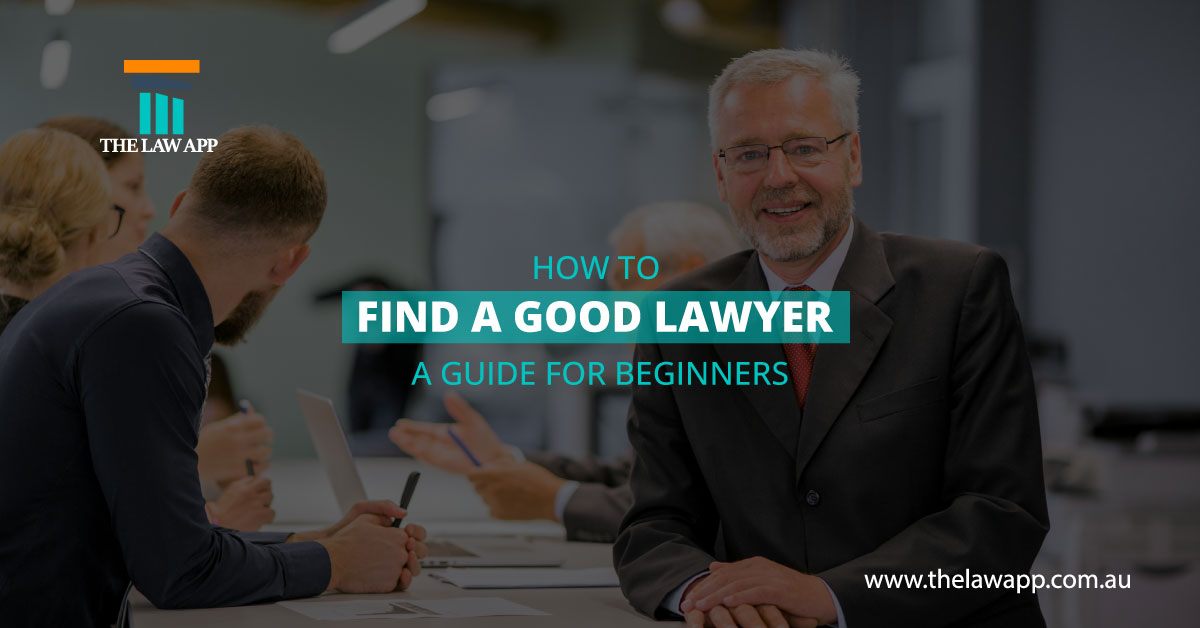
Finding a good lawyer can be a daunting task, especially if you’ve never had to hire one before. You may be unclear on what to look for and how to go about finding the right legal representation for your case. This guide will provide you with the tips and resources you need to help you find a good lawyer for your needs.
Before you begin your search for a lawyer, it’s important to have a basic understanding of your legal issue. Take some time to research the issue and familiarise yourself with the relevant laws and regulations. This will help you communicate more effectively with potential lawyers and make sure that you choose the right one for your specific case.
 Once you have a better understanding of your legal issue, you can start to narrow down your search for a lawyer. Different types of lawyers specialise in different areas of law, so it’s important to choose the right type of lawyer for your needs. Do some research to find out what kind of lawyer you need and make sure they have experience in the area of law that your case falls under.
Once you have a better understanding of your legal issue, you can start to narrow down your search for a lawyer. Different types of lawyers specialise in different areas of law, so it’s important to choose the right type of lawyer for your needs. Do some research to find out what kind of lawyer you need and make sure they have experience in the area of law that your case falls under.
Once you know what type of lawyer you’re looking for, you can begin to make a list of potential candidates. Start by asking friends, family, and colleagues for recommendations, and search for lawyers in your area who specialise in the type of law that you need. You can also search online for lawyers and read reviews from former clients to get a better idea of their reputation and experience.
When narrowing down your list of potential lawyers, make sure to check their credentials and licenses. All lawyers should be licensed by the state or province in which they practice law. You can usually find this information on the lawyer’s website or by searching for the lawyer’s name on the state bar association website.
Once you’ve narrowed down your list of potential lawyers, it’s time to start scheduling consultations. Many lawyers offer free consultations, so don’t be afraid to take advantage of this and meet with several different lawyers. During the consultation, ask questions about their experience and qualifications and make sure you feel comfortable with the lawyer’s communication style.
A good lawyer should be able to provide you with references from former clients. Ask the lawyer for references and make sure to follow up and contact them. This will give you a better idea of the lawyer’s work ethic and experience.
When meeting with potential lawyers, make sure to ask about their fees and payment plans. Different lawyers may have different payment structures, so it’s important to find out what works best for you.
Once you’ve met with a few potential lawyers, it’s time to evaluate your options. Make a list of the pros and cons of each lawyer and consider how comfortable you feel with the lawyer. Choose the lawyer that you feel most comfortable with and that you trust to handle your case.
 Once you’ve chosen a lawyer, it’s time to sign a contract. Make sure to read the contract carefully and ask questions if you don’t understand anything. This contract should include all of the details of the agreement, such as the lawyer’s fees, payment plans, and any deadlines.
Once you’ve chosen a lawyer, it’s time to sign a contract. Make sure to read the contract carefully and ask questions if you don’t understand anything. This contract should include all of the details of the agreement, such as the lawyer’s fees, payment plans, and any deadlines.
Once you’ve signed the contract, it’s time to establish a working relationship with your lawyer. Make sure to communicate regularly with your lawyer and provide them with any information they need in a timely manner.
When it comes to finding a lawyer, it’s important to trust your instincts. If you don’t feel comfortable with a particular lawyer, then it’s likely not the right fit for you.
Make sure to be clear about your expectations when communicating with your lawyer. Be sure to communicate any deadlines or expectations you have for the case, and make sure that your lawyer is aware of your expectations.
Your lawyer is the expert, so it’s important to be open to their advice and guidance. Listen to their advice and suggestions, and don’t be afraid to ask questions if you don’t understand something.
Once you and your lawyer have agreed on a course of action, make sure to follow through on it. If you have any questions or concerns, make sure to communicate them in a timely manner.
At the end of the case, take some time to review and revise any agreements or contracts you have with your lawyer. Make sure that everything is clear and that you understand any changes that have been made.
Finding a good lawyer can be a difficult task, but with the right resources and tips, you can find the right legal representation for your case. Make sure to do your research, communicate with potential lawyers, and trust your instincts when choosing the right lawyer for you.
The best way to determine if a lawyer is good is to research their experience and reputation. It is important to look up their professional background and any awards or recognition they have received. Additionally, it is a good idea to read reviews from former clients and ask questions about how they can help you with your specific legal needs. Once you have gathered this information, you should be able to determine if the lawyer is good or not.
When interviewing a lawyer, it is important to ask questions to ensure they are the right fit for your legal needs. Some important questions to ask include: How long have you been practicing law? Do you specialise in any areas of law? What kind of cases have you handled in the past? What is your legal philosophy? What are your fees and payment policies? How often will you communicate with me about my case?
When looking for a lawyer, it is important to consider their qualifications. The lawyer should be licensed to practice law in your state and specialise in the area of law you need. Additionally, they should have experience in handling similar cases to yours and be knowledgeable about the legal process. They should also have a good reputation and be someone you can trust to handle your case.
The cost of hiring a lawyer can vary depending on the type of case, the lawyer’s experience, and the area of law. Some lawyers charge flat fees for their services, while others charge an hourly rate. It is important to ask about the payment terms and any additional fees that may be associated with the case. Additionally, some lawyers may offer a free initial consultation, which is a good opportunity to discuss the details and costs of the case.
The length of your case will depend on the complexity of the legal matter and the amount of work involved. Some cases can be resolved in a matter of weeks, while others may take months or even years. It is important to discuss the timeline with your lawyer so you can plan accordingly.
It is important to hire a lawyer as soon as possible if you are facing a legal issue. This will ensure that they are able to advise you on the best course of action and begin working on your case right away. Additionally, it is important to remember that the earlier you hire a lawyer, the less likely it is that the case will become more complicated.
We would like to extend an invitation to you to stay connected with The Law App by joining our social networks from footer section and rate us on Google Map. At The Law App, we believe in the power of community, and we are always looking for new ways to connect with our users.